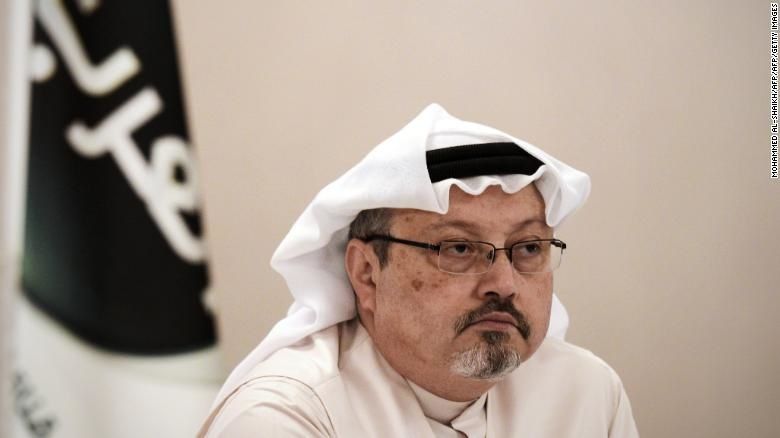December 21, 2018
Alex's big story of 2018: The murder of Jamal Khashoggi.
Not only did the killing of this Saudi journalist capture and hold the world's attention, it threw a harsh light on some larger themes now reshaping global politics.
First, the government-backed killing of a prominent writer underscored the growing dangers that journalists face all over the world. That's a problem not only in autocracies like Saudi Arabia or China, but in increasingly precarious democracies too. This threat to the press is part of bigger trends: plummeting public trust in institutions, a growing "war on truth," and flagging faith in liberal democratic norms.
At the same time, his murder – by all indications ordered by a crown prince with close ties to the White House – also raised legitimate questions about whether Donald Trump's nakedly transactional foreign policy will expand authoritarian governments' perceptions of what they can get away with.
A potentially positive legacy of Khashoggi's murder: The intensified scrutiny of Saudi Arabia threw fresh light on the war in Yemen and helped push the US Senate to cut support for Riyadh's military campaign there. That's partly why a ceasefire became possible for the first time last week. That's a glimmer of hope for an end to "the world's worst humanitarian crisis."
His big question for 2019: Can the world's newly empowered nationalists keep from cutting each other up?
Discontent with the status quo has propelled nationalist politicians to electoral victory in seven of the world's ten largest economies in recent years. And while Italy's Salvini, Hungary's Orban, Austria's Kurz, India's Modi, Mexico's Lopez Obrador, America's Trump, and Brazil's Bolsonaro can agree on what they're against, their interests will clash when they must deal with one another directly.
We see this problem everywhere: Italy and Hungary have migration battles. Italy and Austria have a border dispute. So do India and China. Trump and AMLO have plenty to fight about. AMLO and Bolsonaro are ideologically at odds. And of course, the two biggest economies on earth are now governed by nationalists. Can all these tough guys keep tensions under control?
More For You
Members of the Uyghurs diaspora gather in front of Alberta Legislature during the protest 'Stand in Support of East Turkistan' to commemorate the 1990 Barin Uprising, on April 6, 2024, in Edmonton, Alberta, Canada. The East Turkestan independence movement seeks the region's independence for the Uyghur people from China. They advocate renaming the region from Xinjiang to East Turkestan, its historical name.
Photo by Artur Widak/NurPhoto
Remember Xinjiang? There was a time, not long ago, when China’s crackdown on the Uyghurs, a Muslim minority group living in Xinjiang province in Northwestern China, was a hot topic. But these days the attention has faded.
Most Popular
Think you know what's going on around the world? Here's your chance to prove it.
Nearly four years into Russia's invasion of Ukraine, the push to end the war is intensifying. The past few weeks produced not one but two proposals.
With widespread AI adoption across sectors, its economic impact is no longer theoretical. It’s measurable. The result? New waves of innovation and a more AI-powered economy. Subscribe to Bank of America Institute for deeper insights on AI’s impact.
© 2025 GZERO Media. All Rights Reserved | A Eurasia Group media company.
